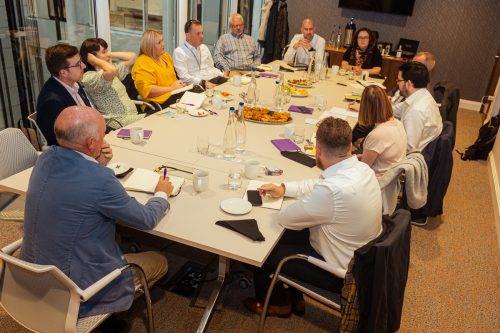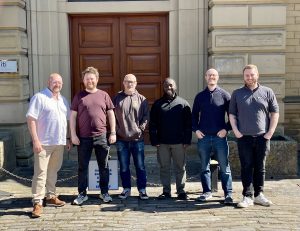Health tech faces cultural challenges in developing medical innovations

Innovative medtech companies face a range of challenges getting their products into hospitals and clinics – and it isn’t just paperwork.
While bureaucracy did attract criticism from medtech leaders at TheBusinessDesk.com’s roundtable on healthcare, sponsored by tax relief specialist Access2Funding, a Ryan company, several pointed out cultural differences between innovators and clinicians and funding periods also created hurdles.
And with these challenges overcome, many new products created incremental improvements to clinical practices, and it was difficult to assess their individual impact on patient outcomes in complex cases.
David Jayne, professor of surgery at the University of Leeds’ Centre for Healthcare Innovation, said clinicians and innovators had to learn to talk to each other in order to speed development and delivery of new products.
“It’s about the different stakeholders having a deeper understanding of what they offer each other at the moment,” he said. “I think there’s a fairly superficial interaction. It’s about developing those conversations and those understandings.
“Clinicians aren’t business savvy, and they don’t understand commercialisation. They see a great idea, and they want it now. And business has developed great ideas, but are they fit for purpose? It’s this understanding of bringing people together. It’s about building the community.”
Kate Lodge, partnership director at Leeds Academic Health Partnership, agreed. “If you design in isolation, you’re not going to get it right. If you’re working with people in the system, and service users themselves, to co-design, then you see that as you’re designing.”
Deeper understanding might help, but effective innovation needed still more, said Graeme Hall, executive chairman of Brandon Medical. “You need the entrepreneurial leader to put all these things together. That’s why it’s so difficult. You see lots of clever things coming out of universities and hospitals that don’t go very far because there isn’t a way to put all that expertise together.”
Innovators also faced challenges in getting funding in timely fashion, said Chris Yates, chief executive of Abingdon Health, which makes lateral flow tests. Innovate grants could take 18 months from application to receiving cash. “That’s a whole cycle of innovation,” he said. “We need to try and speed those processes – not to say we shouldn’t do the due diligence and do it the right way. But I don’t understand how we can apply for something two years ago and be successful, and then we’re just sitting on our hands.”
Financial support for innovation may have suffered delays in the past, but Laura O’Neill, grants manager at Catax Group, which recently acquired Access2Funding, said new grant delivery plans had been developed over the last couple of months.
“We’re starting to see the money flowing through. That’s exciting for me because that means we can help our clients, who themselves are really exciting, really innovative businesses. We can help them get their products up and running and get those innovations into the market.”
The advantage for innovative firms is that investment is mobile, said Will Arnold, partner at corporate finance advisor Sentio. “Funders are there. They’re desperate, and they will come to places where the innovation is. They’ll move around and investment will come into the region.”
The Talking Tech roundtable series is sponsored by Access2Funding, Armstrong Watson, Gordons, and Sentio.
The next article from this discussion will cover challenges with NHS procurement and digital technology assessment criteria (DTAC).









